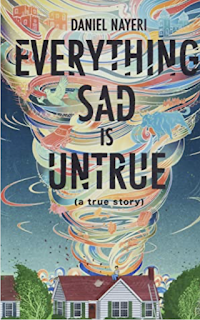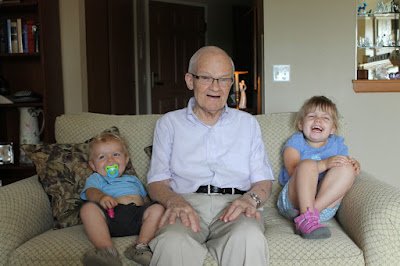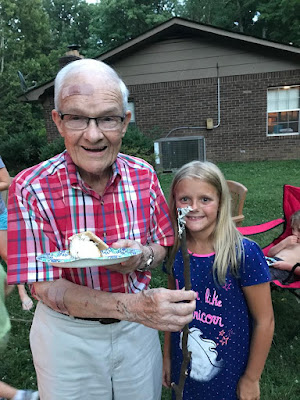The Ten Best Books I Read in 2022
For the fourth year in a row, I'm closing out the year by sharing the ten best books I read this year. Scroll down to find the lists for 2021, 2020, and 2019. I've enjoyed hearing from those of you who took this list to the bank. Generally, I keep a chronological list of everything I read, adding a * to any book that I thought was just great, and it's usually about ten books each year. This year, I either read a lot of great books or my * standard is slipping. So I had to do some winnowing to get down to ten, but I've included the other * books at the end in an Honorable Mention category. Here they are, in the order in which I read them.
Station Eleven by Emily St. John Mandel
Written in 2014, this novel follows the world through a novel flu epidemic that wipes out 99% of the population. I got it a few years ago, but needless to say, didn't have the heart to read it during the peak of the Covid-19 pandemic. With an amazingly written, interwoven plot, the primary thread follows a traveling Shakespeare troop that plods up and down the now-wilderness of the Lake Michigan shoreline. One review said something about, as dystopia goes, this is the first novel that is more about living than surviving, and I would agree.
Everything Happens for a Reason (and Other Lies I've Loved) by Kate Bowler
Kate Bowler is a Duke Divinity faculty member whose research has centered on the prosperity gospel. Then, at age 35 with a young son, she was diagnosed with stage IV cancer, and this book records her own struggles with living out incredible suffering. She is insightful, incredibly nuanced, sassy, and sympathetic to a very large variety of people. She is the kind of witness that you want to listen to and learn from.
It was the sin of arrogance, of becoming impervious to life itself. I failed to love what was present and decided to love what was possible instead.
The Last Cuentista by Donna Barba Higuera
In the last four years of making this list, this is the first time that the Newbery Medal winner has earned a spot in the top ten. It's probably the best Newbery since 2011's Moon Over Manifest. It's an odd hybrid of Latin-x culture ("cuentista" being "storyteller" in Spanish) and Sci-Fi, as it follows a ship of people seeking a new world home after Earth is struck by a comet. But it totally works. I'm not a huge Sci-Fi fan generally, but this is the genre at its best, dealing with big life questions that pit our desire to be safe against our desire to be fully human.
Okay for Now by Gary Schmidt
I had previously read Schmidt's Lizzie Bright and the Buckminster Boy and The Wednesday Wars (top ten 2020 list), but Okay for Now cemented my opinion that Gary Schmidt is simply one of America's best young adult novelists. I'll read anything he writes (and I read two more of his novels this year to make good on that). How can a book about an adolescent boy be so sad and funny and happy and heartbreaking all at the same time? (My only suggestion is that the publisher take a different approach to his cover art, which makes his books look fluffy.)
Hind's Feet on High Places by Hannah Hurnard
I read this book back in college and loved the simple way in which in made me reimagine my life as a journey. Its literary style is in no way impressive, but while visiting the Pyrenees this summer, I was reminded of it, and decided to read it together with Maggie. The allegory still holds up well, and the depiction of the Christ-figure Shepherd is really joyful.
Beartown by Fredrik Backman
This was recommended by our teammate Glory. It's the story of a rural Swedish hockey town whose hockey hopes (or obsession) are pitted against an act of great violence in their community. I have never had a book on this top ten list that I almost stopped reading halfway through. It was difficult to understand just why this book was so hard to read at certain points, but I think it's fundamentally because Backman's characters are so nuanced that they feel so real.
Under the Unpredictable Plant by Eugene Peterson
As predicted, Eugene Peterson made the list for the third year in a row. Scott Myhre recommended this one, and it is a great exploration of Jonah, but more than that, a thorough look at pursuing holiness in vocational ministry (for him as a pastor, but for me as a missionary, and many others, I'm sure).
What I love is the creativity. And what I know is that I can never be involved in creativity except by entering the mess.
Becoming Friends of Time: Disability, Timefullness and Gentle Discipleship by John Swinton
I would have never found this book if not for James Paternoster giving it to me, and I'm so glad he did. John Swinton is a theologian at Aberdeen Divinity School, but he is also a mental health nurse. This book is somewhat academic, and thus not for everyone, but I just loved it. Swinton describes how modern Western notions of Time are not necessarily biblical, and how such notions marginalize those with profound disabilities. He then explores how being with people with disabilities can help us all learn more about Biblical timefullness.
As an aspect of God's love, the purpose of time is to facilitate and sustain love.
The reality is that, when time is love, speed equals less of it.
Everything Sad is Untrue by Daniel Nayeri
Daniel Nayeri tells the basically autobiographical story of growing up in Iran, and his mom converting to Christianity, which led to her (along with him and his sister) fleeing the country, landing finally in the USA. It's hilarious and bizarre and endearing and creative. It's a fantastic American immigration story with all the tension of America being great and also not great (and not home). Nayeri's description of his complicated relationship with his dad is depicted just as sorrowful and unique as I imagine it is. Thanks to Clayton for recommending it. Maggie also loved it.
Jack by Marilynne Robinson
I have read and loved Gilead, Lila, and Home by Robinson, all following the same main characters. I was excited to read another, this time following the prodigal white preacher's son Jack in the part of the saga where he falls in love with the winsome black preacher's daughter Della in an era of St. Louis history where such a relationship was illegal. When I was about 50 pages into the book, I was admiring (again) Robinson's craft, but feeling the weight of her long conversations and complicated characters. But, by the end, it was simply another home run. Marilynne Robinson is incredible.
Truth versus poetry was really no contest.
Della said, "It will be alright." And then she said, "If it isn't, what will it matter?" True enough.
Honorable Mentions:
Nevermoor by Jessica Townsend
Educated by Tara Westover
Bullies and Saints by John Dickson
The Gift of Disillusionment by Peter Greer and Chris Horst




















